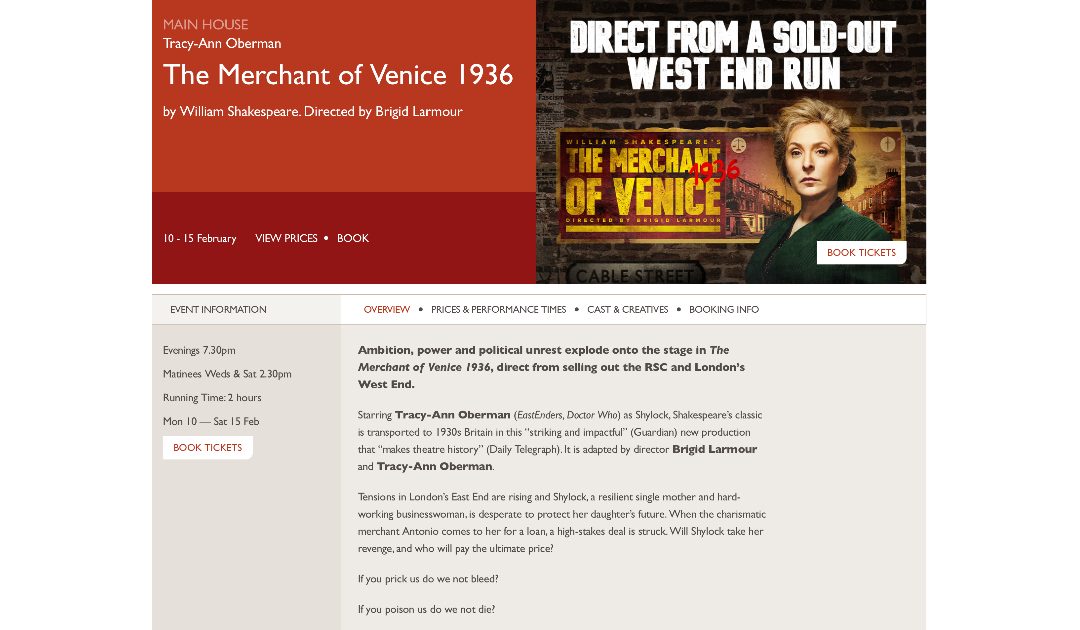Claire and I went to see a quite brilliant performance of The Merchant of Venice last night at the Theatre Royal in Bath. Claire said it was the most moving performance she has seen of any play, anywhere, and I wholeheartedly agree. There were a few adaptations: Shylock is a woman, played by Tracy-Ann Oberman. It is set in the East End of London, in 1936, and the climax is the Battle of Cable Street. With the ascendency of the far-right playing out around the world, and, let’s face it, here too, the standing ovation was made with “They Shall Not Pass” still ringing in our ears, and hearts.
Seeing this brilliant version of Shakespeare’s play reminded me of Rodrigo Lopez, who I discovered whilst researching The Spy who Sank the Armada, the first book in the Sir Anthony Standen Adventures. Anthony was the elder brother of my 10th great-grandfather, and an Elizabethan spy. He accompanied the Earl of Essex on his expeditions to Cadiz and the Azores, as well as his ill-fated expedition to Ireland. But back to Lopez.
Rodrigo Lopez, a Portuguese-Jewish physician, is often linked to The Merchant of Venice because of his controversial trial and execution, which may have influenced Shakespeare’s portrayal of Shylock.
Rodrigo Lopez (c. 1517 – 1594) was a converted Jew (or converso) from Portugal who became the personal physician to Queen Elizabeth I. He lived in England as a practicing Protestant but was secretly suspected of maintaining Jewish beliefs.
In 1594, Lopez was accused of plotting to poison Elizabeth I. His main accuser was the Earl of Essex, a political rival at court. The evidence against Lopez was weak and possibly fabricated, but anti-Semitic sentiment played a role in his conviction. At his trial, he declared his innocence and reportedly said, “I love the Queen as much as I love Jesus Christ,”a statement that his enemies twisted as proof of his Jewish identity. He was executed in June 1594.
Shakespeare probably wrote The Merchant of Venice around 1596 – 1597, just a few years after Lopez’s trial. The execution had stirred anti-Semitic sentiment in England, and some scholars believe that Lopez’s fate influenced Shakespeare’s depiction of Shylock, the Jewish moneylender.
While Shakespeare’s exact views on Lopez and anti-Semitism are unclear, The Merchant of Venice reflects contemporary fears and prejudices toward Jews and outsiders in Elizabethan England.

